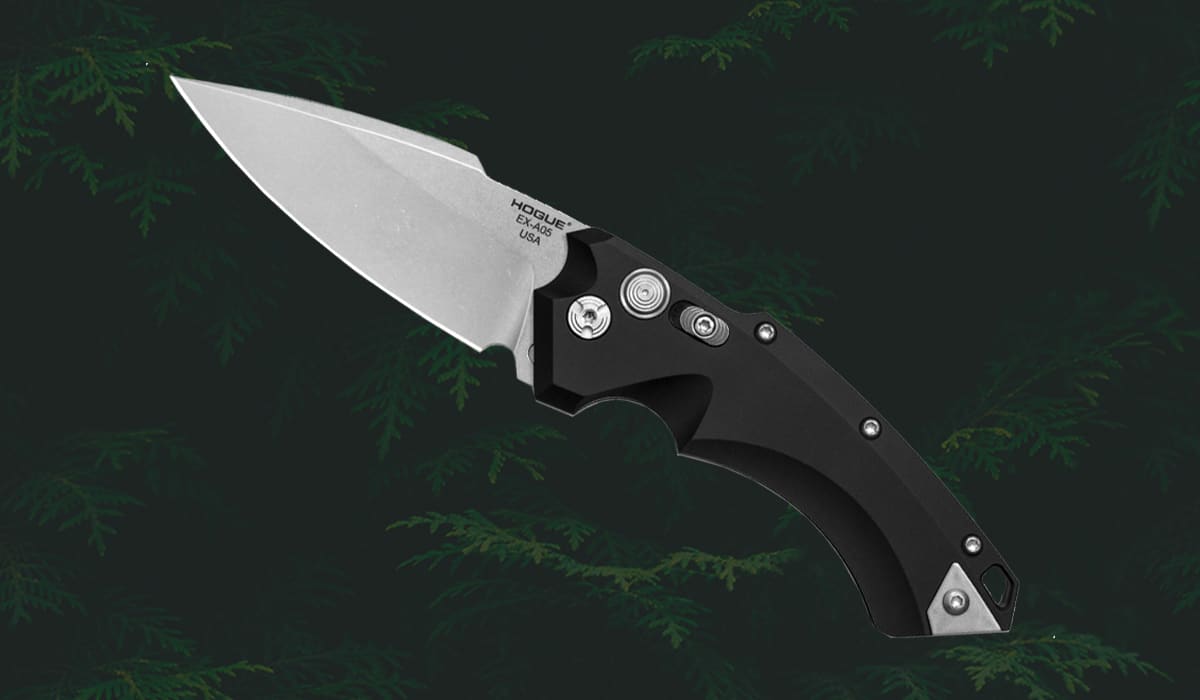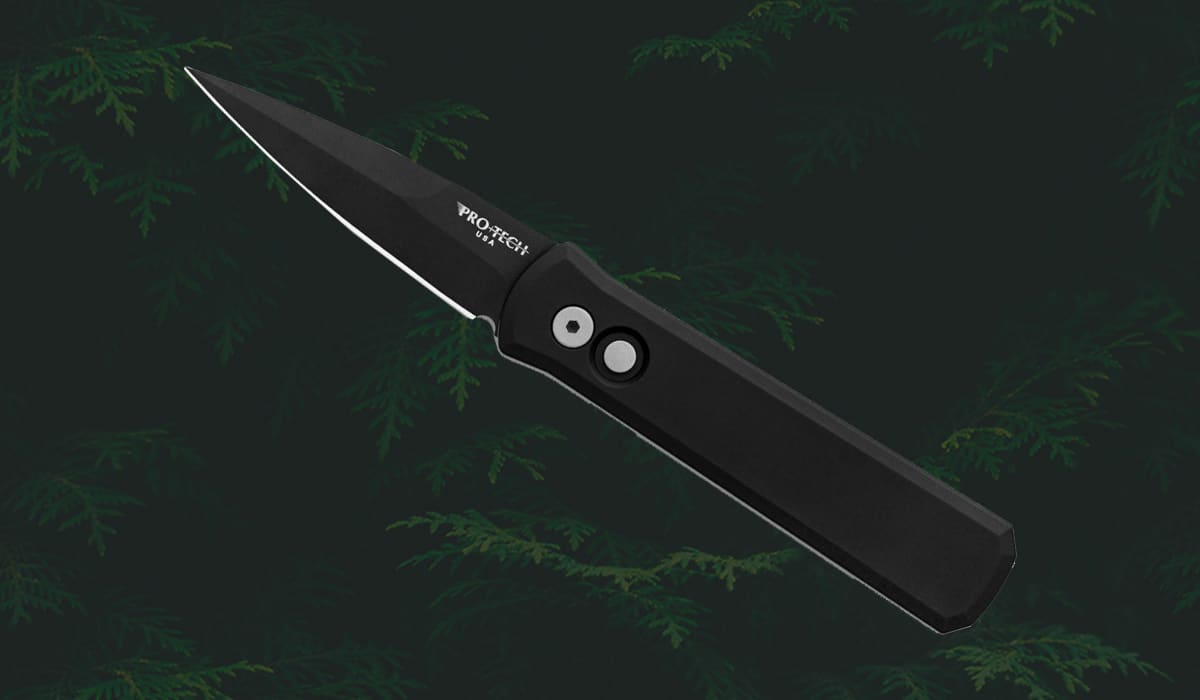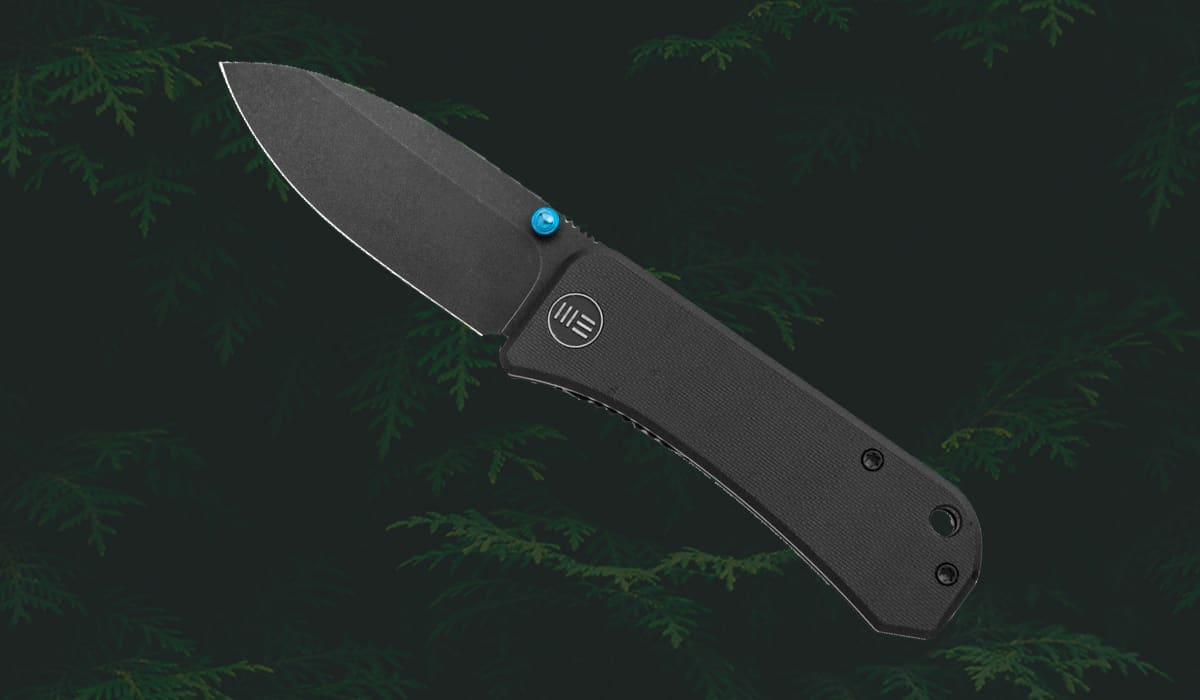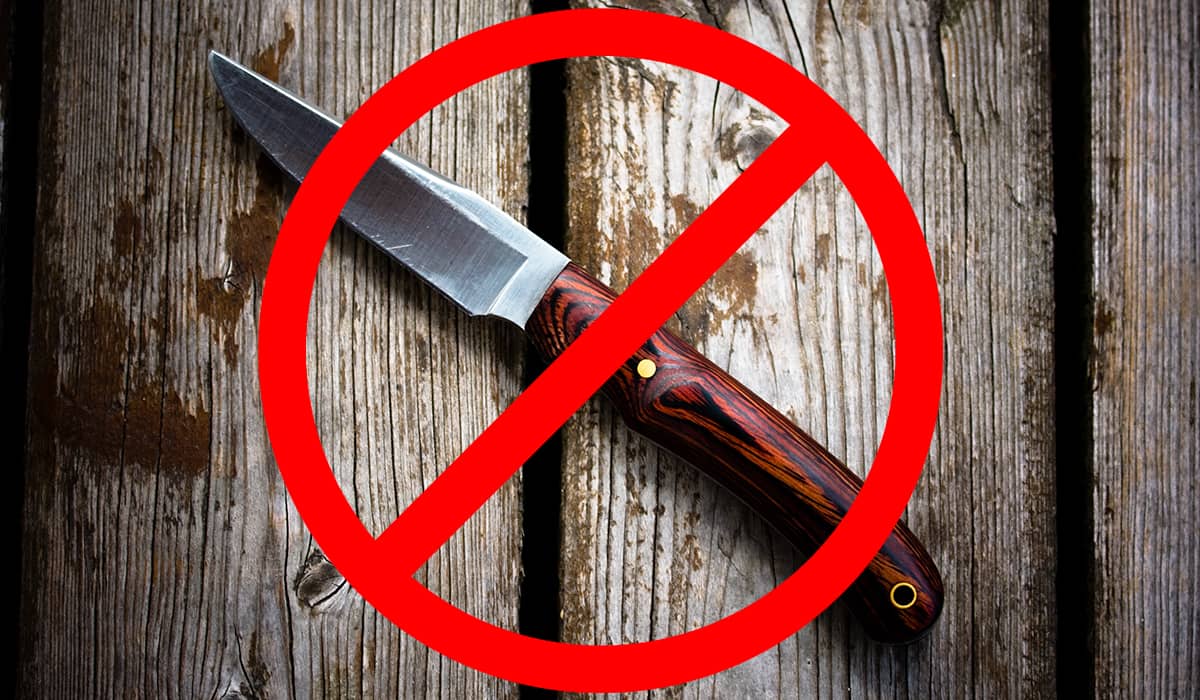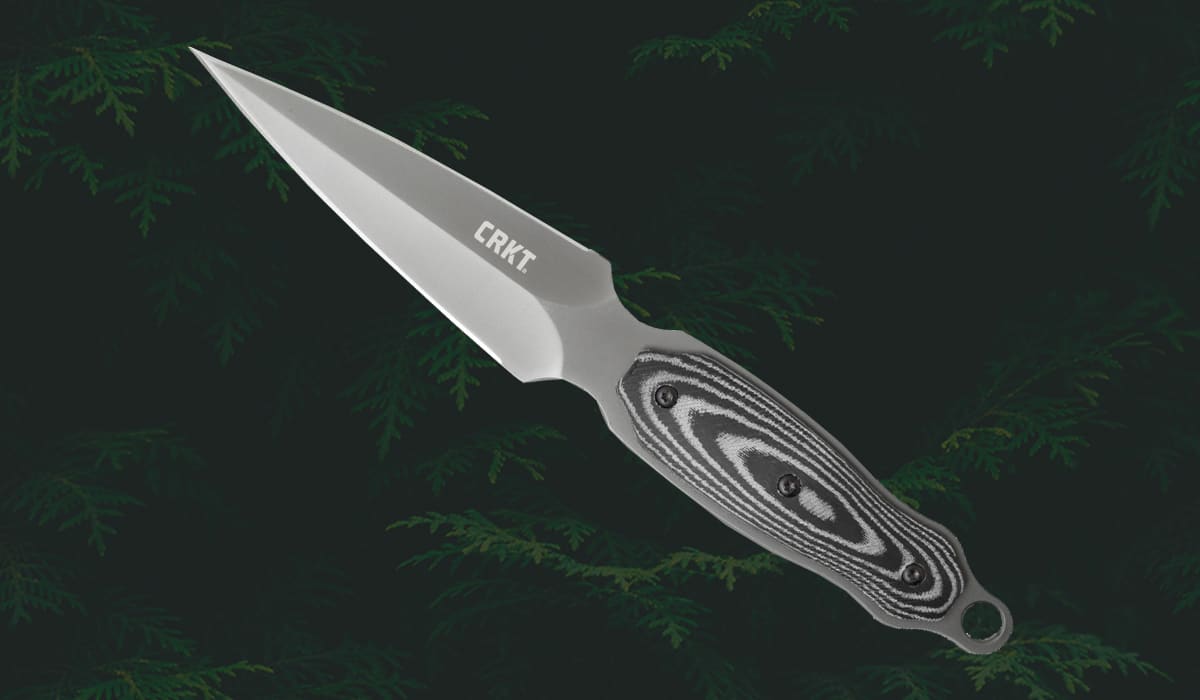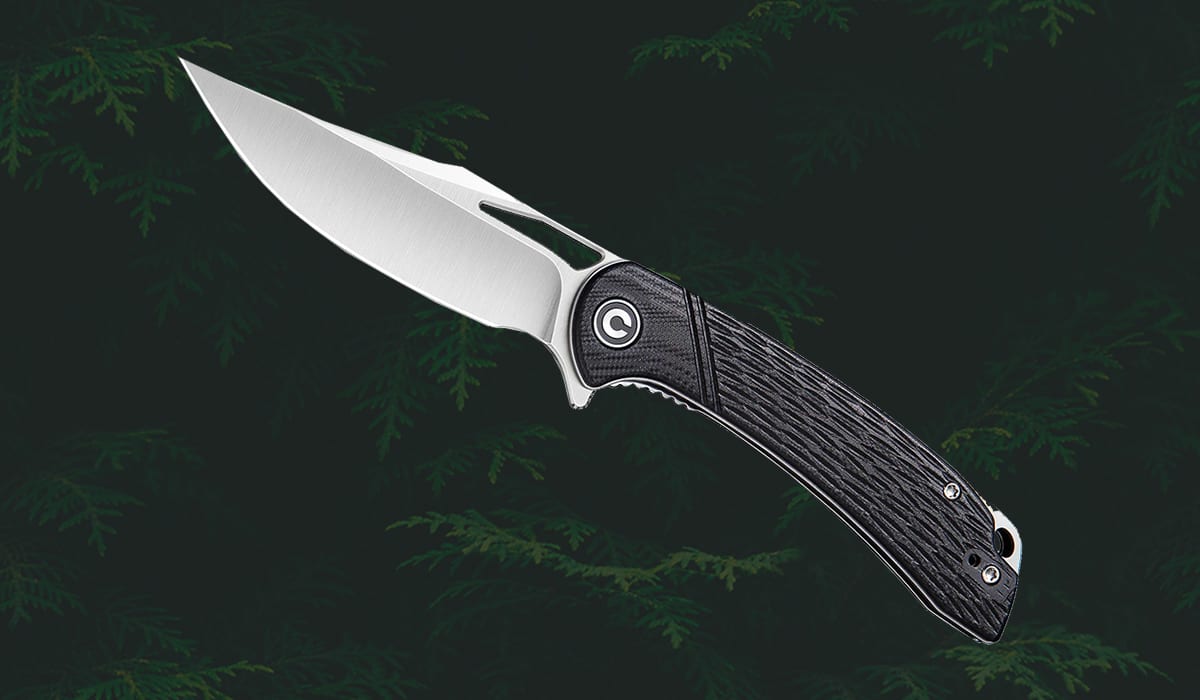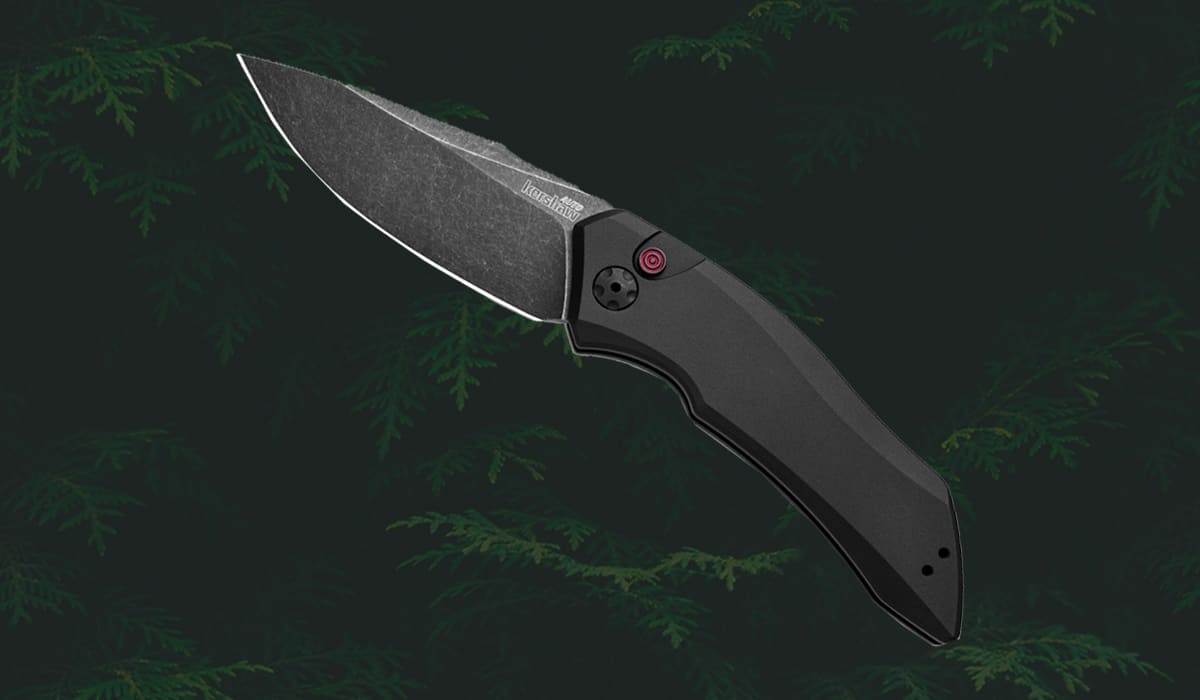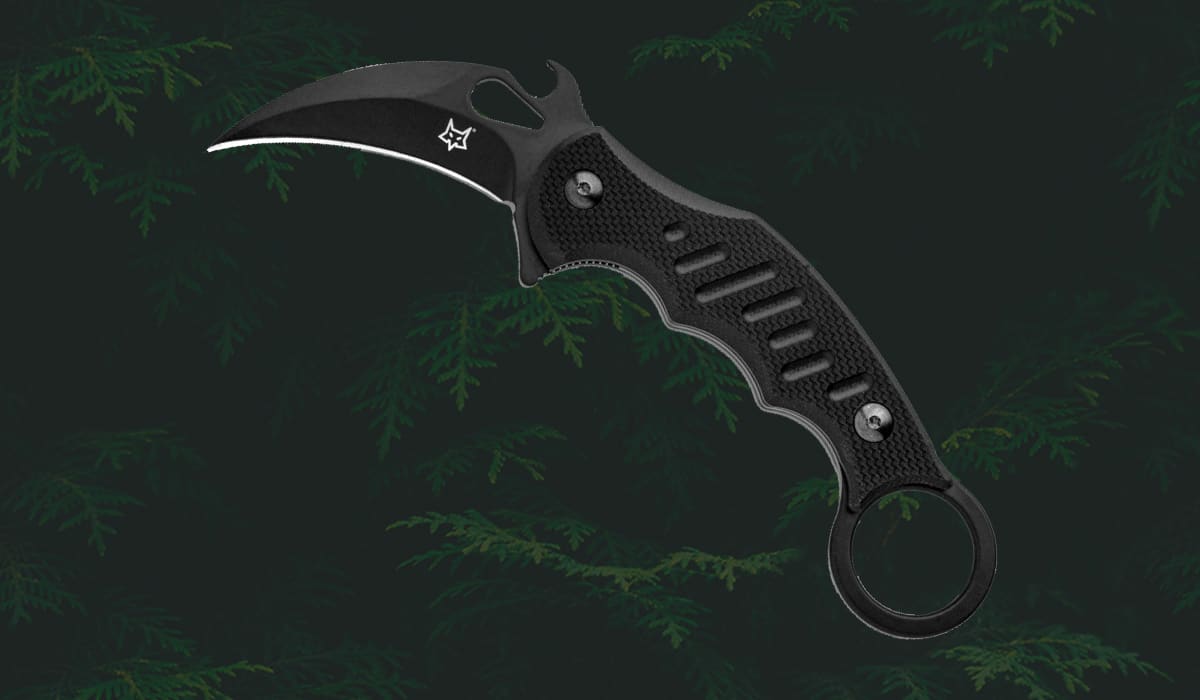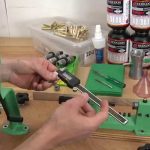What’s the Best Self Defence Knife? Generally the One You’re Carrying
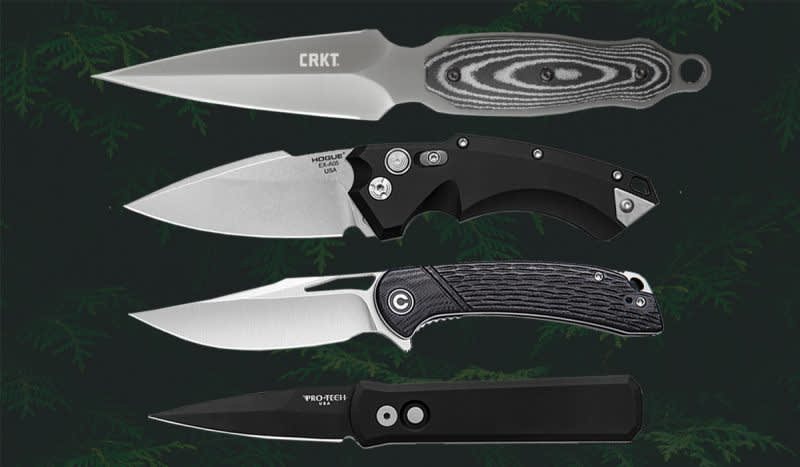
1. Hogue Knives EX-A05 Spear Point Automatic Knife
Starting on the bigger side of things, this snappy automatic spear point folder from Hogue has enough size and heft to provide a bit of an intimidation factor if it needs to be drawn. Fitted with a 3.5-inch blade and deep carry clip, it’s not so hefty that it’s overbearing for daily carry, and a safety lock switch protects its owner from any risk of accidental deployment. Given Hogue’s background in gun grip manufacturing, you can trust that the ergonomics on the EX-A05 are rock solid.
2. Pro-Tech Godson Automatic Knife
A touch more discreet than the Hogue, the Pro-Tech Godson is a clean and simple automatic-deployment folding knife with an aggressive spear point (almost dagger shaped) blade. Though the Godson is the downsized version of the brand’s large 4-inch Godfather automatic, its 3.15-inch blade is plenty big for the purposes of utility and self defence, if needs must. Though available in a range of finishes, we’ve opted for the all-black variant here with its matte black anodized aluminum scales, for added discretion.
3. WE Knives Banter Liner Lock Knife
Opting for the WE Knives Banter in this list speaks more to our opening statement about having a single knife that you’re extremely comfortable with for all situations. The Banter’s blade is just a touch under three inches in length, and is a quintessential example of an everyday folder that you can carry everywhere and use for anything. It’s these particular qualities that you want in a knife should an emergency situation arise, rather than some sort of fancy combat knife that you only take out of the house every once in a blue moon.
4. Just Don't Do It
Look, it’s not our place to tell you what you are and aren’t capable of, but in a lot of cases bringing a knife to a fight—whether with someone armed or unarmed—is a huge gamble and not one to be taken lightly. Odds are you don’t know your opponent, nor do you know what they are capable of. Sure, there’s a chance that drawing a knife could intimidate them into backing off, but there’s not even the slightest guarantee of that. There’s the matter of them catching you off guard with a strike, and the knife changing hands. Also a very bad scenario to be facing. Beyond that, once law enforcement gets involved (if a knife gets drawn, odds are they will), there’s a mighty fine chance of you going away in cuffs regardless of who or what started the altercation in question.
The point is, your blade is your LAST option, and that’s where it should stay. Defend yourself if you absolutely must, but don’t draw it unless you’re committed and confident in your decision.
5. CRKT Lerch Shrill Boot Knife
OK, by now some of you are shouting at me to give you something a little more tactical/combat focused, so here’s your option. The Shrill is one seriously sharp and stabby piece of hardware that is slender enough to tuck into a boot or under a belt without it being immediately apparent that you’re carrying. It rides deep in its supplied leather sheath, so it might be worth adding a short paracord lanyard to it for east of access. This thing has 4.8 inches of dual-edged blade, making it the largest and most offensive tool of this list.
6. Civivi Dogma Liner Lock Knife
The Civivi Dogma fits surprisingly well into this list. Its overall design aligns it more with the everyday carry side of things, opening via a flipper tab rather than being a pushbutton automatic, however its 3.46-inch clip point blade is plenty capable of doing damage when called upon. It’s also one of the more affordable options on this list, which is always a plus.
7. Kershaw Launch 1 Automatic Knife
Kershaw’s latest entrant in the automatic category is the Launch 1, and based on its specs it’s a solid candidate for a safety and self defence carry. It’s another good midsize option, with a blade length of just over three and a quarter inches. Its two-piece aluminum construction creates an interesting integral backspacer, and even with a sub-$100 sticker price it’s entirely made in the USA. Though designed with a swappable clip for either left or right hand carrying, the location of the push-button for deployment would make this pretty cumbersome for a lefty.
8. Fox Knives Karambit Folder
On the off chance that you have some semblance of formal blade combat training on your resumé, the Fox Knives folding Karambit, could well be an effective tool. The combination of its grip ring and hawkbill blade shape make it a bit of a particular carry for any other situation outside of combat, not to mention the fact that it’ll likely make non-knife people around you look at you a little sideways if you were to pull it out to open packages or take on other more menial tasks. You’ll note a patented Emerson Wave deployment hook on the top of the blade, which is meant to grab the inside of your pocket and snap the knife open as you draw it—a clever and effective way to have the knife out and at the ready in a hurry. Most commonly used in reverse grip (blade towards the pinky finger rather than thumb), the Karambit’s ring is meant to provide added grip/security in the event that an assailant attempts to knock the weapon from your hand.
Knife Carry — What's Actually Legal Where?
This is a tough one, as the laws vary so dramatically from one state to the next. Thankfully, there are organizations out there who have built a useful compendium of data that will help shed some light on what is and isn’t considered “legal carry” in most places across the US. They also advocate on behalf on knife and tool makers to ensure that laws aren’t limiting your ability to carry any further than they already are.
In some states and counties, it’s illegal to be carrying a knife for the purpose of self defence in the first place. You’ll want to look into that locally, even at the municipal level as well as state. Before even looking at the situational consequences, if an officer stops you, and you state that the knife that you’re carrying is for self defence, you might already be in trouble. This is a further testament to going the “EDC Knife” route, as in that case you’re carrying a personal tool that you use for work or other daily tasks. Sure, it can be used for self defence if absolutely necessary, but intent is key here.
As an interesting note, Did you know that you cannot have an exposed knife of any sorts in New York City? By that I mean, even if a pocket clip is visible outside your pocket, that’s grounds for an arrest if an officer decides to give you a hard time. If a knife blade is under four inches in length, and remains completely concealed when in the public realm, you’re in the clear.
In stark contrast, Texas carry laws are far more forgiving, though one recent attempt to amend restrictions failed to be passed at the beginning of June 2021. The current law bans the ability to carry any blade over 5 1/2″ into a number of different public venues ranging from schools to hospitals and elsewhere. The amendment was intended to remove this restriction from bars, places of worship, and amusement parks (an odd selection, mind you), however the amendment was quashed for the time being.
For more details on the legalities of carrying a knife in your state or city, take a poke over to KnifeRights.org for all the information you need.
A Knife for Self Defence — The Dangers
When looking at this category at all, our biggest concern at front of mind was the legality of it all. I’m not talking about what you can and can’t carry any more, but rather what happens after you make that decision that your knife is your only way out of a dangerous situation. No matter how the scenario breaks down from there, expect there to be charges, or at the very least a challenge coming from the legal system.
A knife is a deadly weapon in the eyes of the law. Accordingly, justifying the use of a knife as defence requires clearing several hurdles, which frankly is a good thing. Having a legal environment where any idiot can draw a knife the second they feel mildly threatened (or just mad) would lead to a mass of undue harm.
What we’re basically looking at here is “stand your ground” law. If you’re on this site in the first place, there’s good odds that you know a thing or two about how this law works. If you’re a little rusty, the basics are simple. The law allows an individual to respond with force, and if necessary deadly force, when: he or she reasonably believes it is necessary to do so to prevent death or great bodily harm to himself or herself or another or to prevent the commission of a forcible felony. (Note that the specific verbiage of the law may vary from state to state).
In some states, if the potential victim had the ability to flee the situation and didn’t, they are not protected by the law. In other states, the guidelines of where and when this rule can apply will vary. Yet again, know your local status.
In essence, however, the surrounding structure remains the same. You have to first be able to prove that you were somehow “outgunned” in the scenario. Was the assailant larger than you, stronger than you, or more combat proficient? Was he already wielding a weapon that he intended to use on you?
Next, was/is there a clear opportunity for the assailant to do immediate harm to you? Is the person in your face with a bat in his hand? This is also crucial, because there are plenty of situations that can arise where the assailant does not have a clear path to harm (shouting threats from a passing car, or from inside a residence or other premises, etc), and if you go to them to confront the situation, you’ve become the one that has created the opportunity.
Lastly, does the assailant present the intent to do you harm. This can include everything from a gun pointed at your head, right through to aggressive vocal threats. There doesn’t necessarily have to be an initial act (he who swung first started the altercation), but a clear intent/imminent threat needs to be obviously present. Things will get murky if you’re talking about a 1-on-1 altercation in a dark alley with no cameras around, but intent is still a crucial consideration when it comes to the legal side of using a knife (or any other weapon) in self defence.
At the end of the day, our hope is that none of our readers face a scenario in their lives where pulling their knife in self defence is necessary, but knowing the world is far from perfect, we hope we’ve been able to provide a bit of insight about all the considerations to take in before you have to make this life-altering decision.
We are committed to finding, researching, and recommending the best products. We earn commissions from purchases you make using the retail links in our product reviews. Learn more about how this works.

